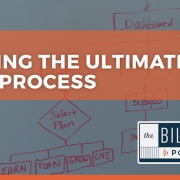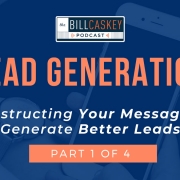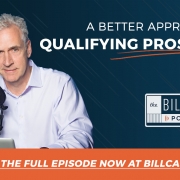Sales Process Work – Inside an Effective Sales Strategy
Recently, I posted on where sales training is going (The Future of Sales Training), I got some flack (probably well-deserved) for not getting in to more detail on each of my points. Sometimes in a blog, you just don’t have space to address the whole topic.
So, today I’ll dive a little deeper into point 1, which I’ve inserted below as a reminder.
1 A lot more process work. A lot less technique work. Not saying you shouldn’t have the basic sales skills (which so few really have), but I’m seeing it become a “process world.” Get the sales process right–and make sure it’s right for the prospect–and results will flow. Most sales companies have no coherent, useful, meaningful sales process. Get one–or hire someone to help you design one.
There is a curse alive and well in professional selling. Most sales processes have been built by sales people (and sales managers, who once were good sales people). The problem with that is the one thing you know about most sales people. They have a tendency for lack of detail. Your accountant or attorney or doctor doesn’t suffer from this. But sales people do.
That’s not a bad thing. It’s just a thing. It becomes a problem though when a “lack of detail person” builds your sales process.
And what has been overlooked in building an effective sales strategy and process are the details of the sequence of events. You see, in every sales process there is a sequence of activities that happen (whether you’re aware of them or not).
Perhaps after the first call, two weeks go by before you get with your prospect again. Guess what? Time kills deals. Consequently, you should have a built-in section of your sales process to make sure no more than 3-5 days go by between contacts with you.
That could mean an article sent to the prospect. It could be a narrative/review of your first call (written of course). It could mean a white paper – or a case study – or a blog that you recently wrote on a topic he/she’s struggling with – or a podcast you’ve done (all the more reason to blog/podcast).
Bottom Line
You MUST think through all the gory details of the sales process. Most companies have not done that. You can do that by doing a Mind Map or a Flow Chart with each and every section of your sales process. Yes, it’s tedious. No, it’s not fun.But all you have is your sales process. You could have a mediocre product, but with a good sales process, you will win a high percentage of time.






Bill, great blog! It’s such a relief to see a salesman who gets it. PROCESS – so important…It’s been part of my mantra against all of the shoot from the hip fancy smanshy closing techniques. Processes go hand in hand with principles which are the base of any sustainable productivity. When the urgent focus goes to “quick” methods and the cutting corners type selling; the result is the current state of decadence in the sales world.
Bill, I couldn’t agree more on this. Speaking from personal experience when, after 2 years selling, I was introduced to a formal sales process my performance improved massively (along with that of my colleagues).
I wrote an article for Social Enterprise magazine in the UK encouraging them to adopt what I called “Sales Methodologies” – basically a sales process, along with the teaching of sales skills. The article should give readers an understanding of how the sales process fits into the sales person’s working life.
I never posted it on my SalesItch.com blog (which is more for sales people rather than sales managers) but this seems like an appropriate place to post the key points from it.
Sales Methodologies – An Introduction
A sales methodology is a set of clearly defined processes and tools designed to help the individual or team emulate the best practice of others.
A good sales methodology is built on research and observations of the actions of top sales people. It should answer three important questions :
What should I do now?
A sales methodology provides a clear sales process through which all your deals or “opportunities” will pass, ensuring appropriately rigorous attention is given to each opportunity. The process is divided into stages running from discovering a new “lead” to the eventual signing of contracts. Most importantly, at each stage the methodology should provide tools to help you analyse and understand this particular opportunity and to develop and execute a plan of action.
For example, after an initially exciting first conversation with a prospective customer, a business owner uses a checklist to assess just how valuable and likely an opportunity it potentially is. Answers to the checklist reveal a number of weaknesses in the opportunity. Consulting her methodology she identifies the appropriate next steps, and is provided with scripts, tools and techniques to support her as she continues selling.
Why do it this way?
A strong sales methodology provides business owners with an understanding of why, and under what circumstances, people buy. No methodology can provide instructions on what to do in every situation, so managers who are equipped with an understanding of the fundamentals of selling are better able to improvise in situations where help is not immediately at hand.
How much business are we going to “close”?
Of particular interest to most business owners is probability rating. This is the practice of giving a percentage rating to the opportunity, representing the likelihood of that opportunity concluding in a sale. The percentage is related to the stage that the opportunity has reached in the sales process. By multiplying the financial value of the opportunity with the percentage rating a value can be attributed to that particular opportunity at that moment in time. By aggregating this number for all the opportunities currently in process, a manager can predict how much revenue will result from his or her activities.